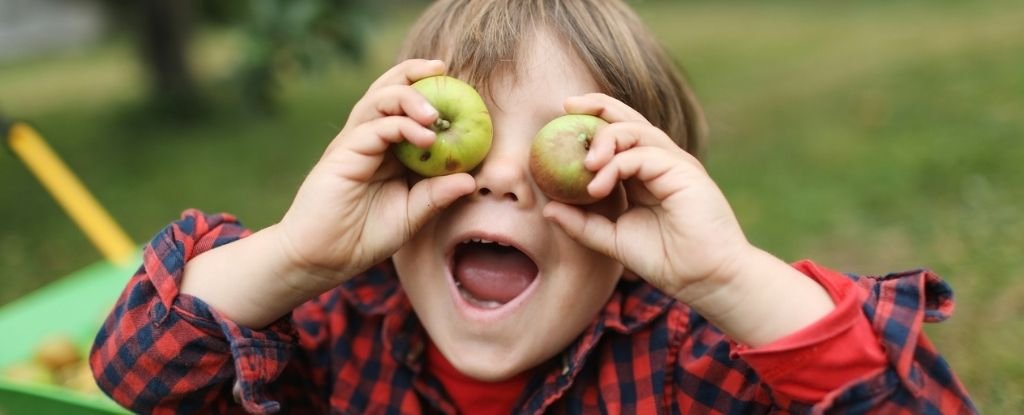
A quick and easy parent survey has allowed psychologists to track how children develop their sense of humor.
It's one of the best timelines we have of when kids start to understand jokes and funny acts. At a few months of age, some forms of humor seem to occur.
Parents of children under the age of 4 were asked if their child laughs and if they appreciate or produce humor, either verbal or physical.
The questions ask about specific types of humor, such as "Has your child ever seen someone make a joke about poop?".
The researchers found a clear age-related pattern in the emergence of humor, no matter a child's nationality or their parent's level of education, when they surveyed 700 parents in the US, UK, and Australia.
In the first year of life, parents said they observed how their children appreciated humor.
More than 75% of parents said their kids were laughing when they were two months old. By the age of one year, most parents reported laughing at their children.
The authors found that children appreciate humor before they start making it themselves.
Kids begin to try out the jokes for themselves later on. The survey shows that about 50 percent of kids are acting funny or silly, usually by showing hidden body parts, using objects, teasing, or inventing strange words.
In the 'terrible twos', almost all kids are making the same jokes, with more aggressive forms of humor like spitting out water or pushing people.
At three years of age, kids start making their own jokes, like saying a cow 'quacks' or deliberately mislabeling an object.
The findings support previous research that suggests humor develops with our motor, social, and language skills. Studies on childhood humor are limited compared to other forms of play.
Researchers argue that the most reliable way of measuring humor in the first four years of life is the EHS.
If the same age-related patterns can be replicated among even larger cohort in different areas of the world, the survey could one day reveal a universal timeline for humor development.
The survey does not include a comprehensive list of all types of humor and it does come with some key limitations.
The results of more formal experiments seem to differ from the results of the questionnaire, which is based on a parent's observations of their child's humor, and while this gives us a better idea of how children use humor on a daily basis in the home, it does seem to differ
The authors write that lab experiments do not necessarily capture the everyday humor reported by parents.
The researchers were not able to replicate the humor development seen in the EHS when they tested the level of humor in 84 children with an experimenter.
The experimenter would model 21 jokes for children and 21 control acts that were not funny. The experimenter would hold up a toy horse and say, "The horse goes neigh!" They would say, "The horse goes quack!" It is a joke.
The experimenter would ask the child to try out the same thing after each act.
The children in the study were more entertained by the joke trials than the control trials. The results were not clear when the authors controlled for age.
The discrepancy could be due to the fact that the experimenter is a stranger, who kids might feel shy or scared to laugh or joke with, but further research will be needed to tease apart these mixed results.
In the future, the team hopes that their survey will be used to conduct humor research around the world, allowing psychologists to study how kids respond to different types of humor.
The results could show how parents and teachers can better incorporate humor into their lessons.
The study was published.
